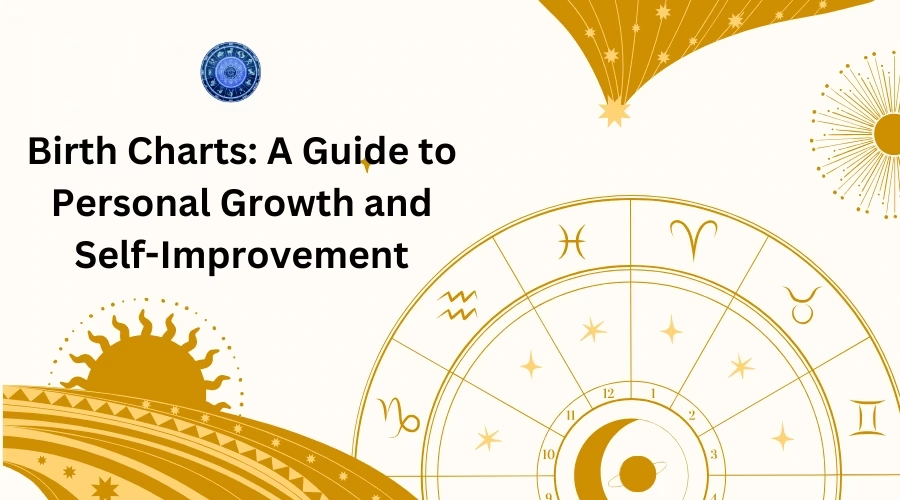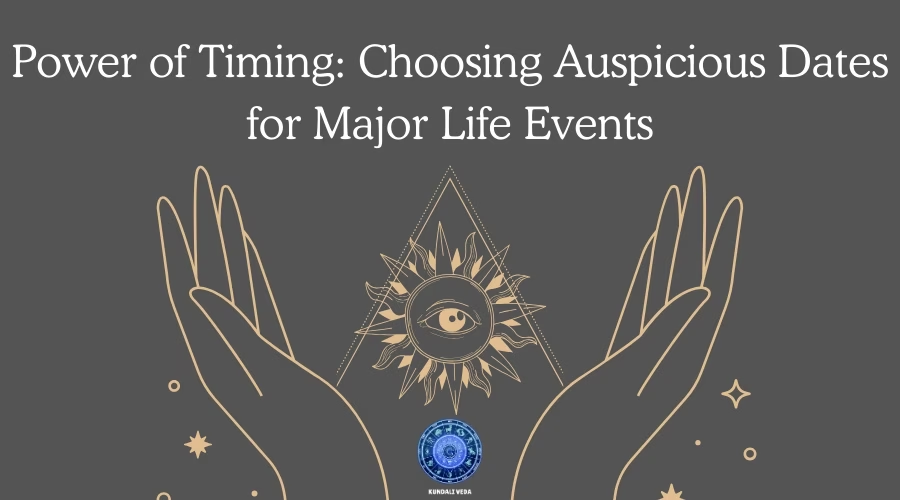Introduction: The Mystique of Astrology – Myths vs. Facts
Astrology, the ancient science that studies the movements of celestial bodies and their potential influence on human affairs, has been practiced for millennia. From the zodiac signs that tell us about our personality to the intricacies of birth charts and planetary transits, astrology offers a unique perspective on life’s biggest questions. It’s no surprise that astrology has maintained a fascinating hold on humanity.
However, with its rise in popularity, astrology has also faced many criticisms and misconceptions. Some dismiss astrology as mere superstition, while others believe it offers life-changing insights. The question arises: What is the truth behind astrology? What are the dos and don’ts? And most importantly, how can we separate astrology’s myths from its facts?
In this blog, we will explore the dos and don’ts of astrology, shedding light on the truths of this ancient science. Through separating fact from fiction, we will reveal how astrology can enhance your understanding of yourself, your relationships, and your life’s journey.
1: What Is Astrology and How Does It Work?
1.1 The Foundations of Astrology
Astrology is based on the principle that celestial bodies—the Sun, Moon, planets, and stars—affect human affairs and natural events. The positions of these celestial bodies at the time of your birth are mapped in your birth chart (also known as a Kundali in Vedic astrology). This birth chart reveals key details about your personality, challenges, potential, and life events.
While modern astrology is often linked to your zodiac sign (the Sun sign), it is only a fraction of the information contained within your full birth chart. Each planet’s position in your chart and the houses they occupy influence various aspects of your life, from career to relationships to finances. This makes astrology not just about personality, but about timing, potential life paths, and much more.
1.2 The Dos of Astrology: What You Should Know
Do Invest Time in Understanding Your Full Birth Chart
One of the dos of astrology is understanding that your Sun sign is just the beginning. Your birth chart is composed of the Moon sign, Ascendant (Rising sign), and the positions of the planets in specific houses. All these elements offer crucial insights into different facets of your life. For example:
- Moon sign: Represents your emotional nature and inner self.
- Rising sign: Describes how you present yourself to the world.
- Mercury’s position: Influences your communication style.
- Venus and Mars: Impact your approach to relationships.
By exploring your complete chart, you gain a much more detailed and personalized understanding of yourself.
Do Trust Astrology for Personal Growth
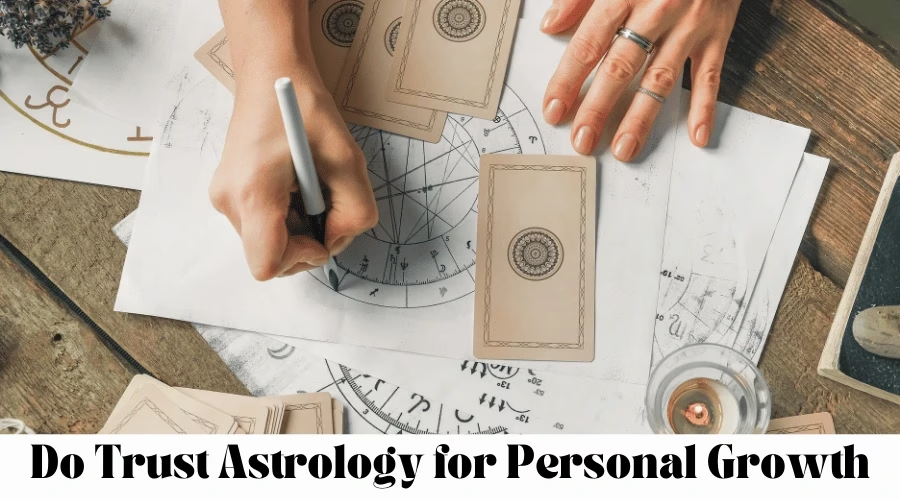
Astrology is an excellent tool for self-reflection and personal development. Your birth chart can highlight your strengths, challenges, and life themes, offering guidance for personal growth. For example, a challenging Saturn placement may indicate lessons around responsibility, discipline, and hard work, which, when embraced, can lead to significant personal growth.
Do Use Astrology for Timing Life Events
Another important do is to use astrology as a tool for making better timing decisions. By studying planetary transits, you can learn about favorable and challenging periods in your life. For instance, a Jupiter transit could signal a time for growth and opportunity, while a Saturn return often marks a period of deep transformation and maturation.
2: Common Myths About Astrology
2.1 Myth 1: Astrology Is Just About Sun Signs
Fact: Astrology is far more complex than just your Sun sign. While your Sun sign represents your core identity, there are other aspects of your chart—like the Moon, Rising, and planetary positions—that contribute significantly to your character and destiny. To truly understand astrology, you need to consider your complete birth chart.
2.2 Myth 2: Astrology Can Predict Exact Future Events
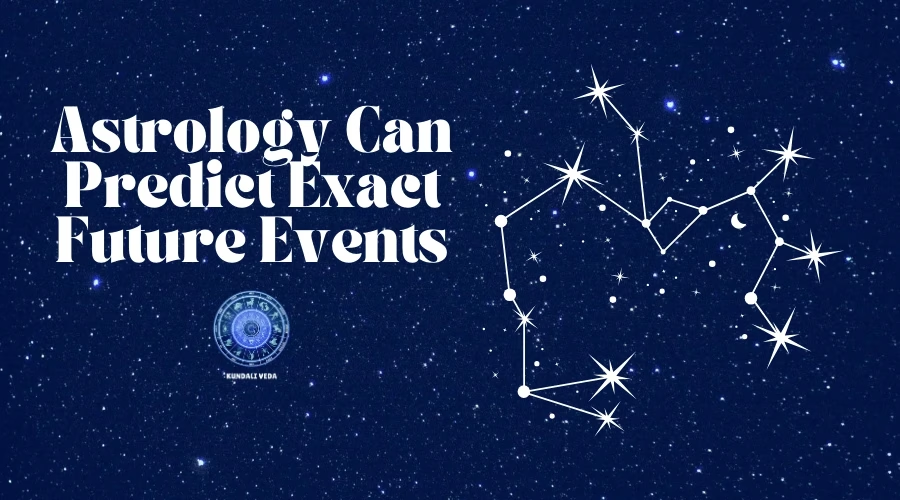
Fact: While astrology can indicate life trends, cycles, and energetic shifts, it does not predict specific events with certainty. For example, astrology can show that a person is in a period of significant transformation, but it cannot tell them exactly when they will get a job or meet their soulmate. Astrology is better understood as a tool for gaining insight into timing and potential, not as a crystal ball.
2.3 Myth 3: Astrology Is Just for Fun
Fact: Although many people casually look at their horoscopes for fun, astrology is a serious study that can provide deep insights into personal challenges, career directions, and emotional health. When practiced properly, astrology offers profound knowledge that can guide you through life’s complexities.
3: The Dos and Don’ts of Applying Astrology in Your Life
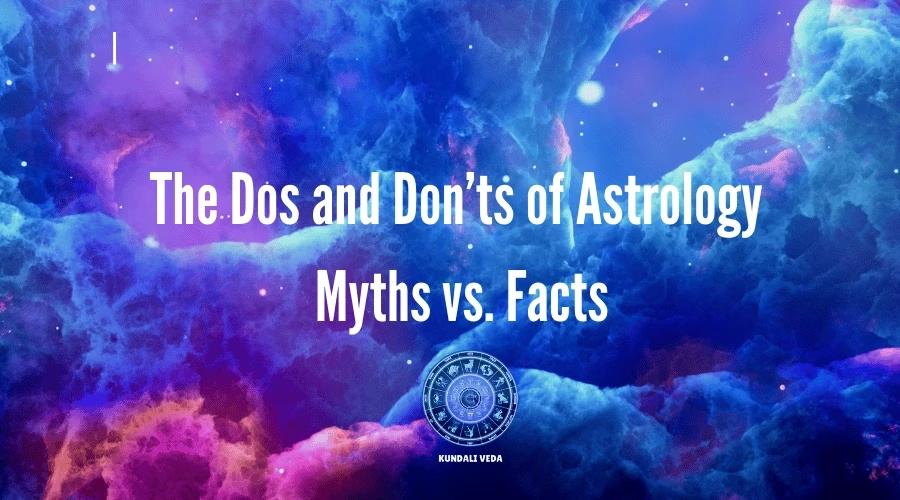
3.1 Do Use Astrology as a Guide, Not a Rulebook
Do embrace astrology as a tool for guidance, but don’t treat it as a strict rulebook. Astrology provides insights, but it’s up to you how to apply them in your life. For example, if your Venus suggests difficulties in relationships, it doesn’t mean you are doomed to a life of loneliness. Instead, it highlights areas you can work on—communication, self-worth, and healing—leading to healthier relationships.
3.2 Don’t Ignore the Importance of Free Will
While astrology can reveal your life themes, challenges, and potential, don’t fall into the trap of thinking that you are completely controlled by your birth chart. Free will plays a crucial role in shaping your destiny. Your chart can reveal opportunities, but it’s up to you to make choices and take action.
3.3 Do Seek a Professional Astrologer for In-Depth Insights
Astrology is an intricate system, and interpreting a full birth chart requires expertise. Don’t rely solely on generic horoscopes or free online charts. Do consider seeking out a professional astrologer who can help you understand the specific nuances of your chart. A trained astrologer can offer tailored advice based on your unique planetary positions.
4: Real-Life Success Stories of Astrology’s Impact
4.1 Case Study 1: Career Growth and Saturn’s Influence
Simran had always struggled with career decisions. After consulting an astrologer, she discovered that Saturn was transiting her 10th House of career and public life. The astrologer advised her that this would be a time of hard work and discipline but that success would come through patience. With this guidance, Simran stayed focused and dedicated, and within a year, she landed a leadership position in her industry.
4.2 Case Study 2: Relationship Insights from Astrology
Raj and Pooja had been dating for several years, but their relationship was facing communication issues. After consulting an astrologer, they discovered that their Moon signs were in opposing elements (Earth and Fire), creating misunderstandings in their emotional expressions. With this insight, they learned to understand each other’s emotional needs better, resulting in a stronger, more harmonious relationship.
- The Science Behind Astrology: Understanding Its Practical Application
5.1 Astrology and Physics: Can They Coexist?
One of the most frequently asked questions about astrology is whether there’s any scientific basis for it. Critics often argue that astrology is nothing more than pseudoscience, given its reliance on celestial movements that seem unrelated to human lives. However, proponents of astrology believe that its practice is grounded in ancient wisdom and symbolic connections to natural phenomena.
Astrology’s core premise is that the celestial bodies—the Sun, Moon, and planets—interact with the Earth in a way that affects human affairs. This is where astrology intersects with astronomy and physics. While astrology doesn’t provide “hard” scientific proof in the same way that physics or chemistry does, many argue that the universe operates on an interconnected web of energies, and astrology offers a way to understand these connections.
For instance, the Moon’s gravitational pull affects the Earth’s tides. Similarly, the position of other celestial bodies at the time of your birth may influence your personality, emotions, and behavior. Modern astrologers often compare these influences to the effects of the moon’s phases on human cycles, suggesting that everything in the universe is interrelated.
The energy fields created by planets might also explain why certain times of the year or certain planetary positions feel more in tune with personal growth. Just as the Moon affects ocean tides, these cosmic events may have subtle effects on our psychological and emotional states.
5.2 How to Integrate Astrology into Your Daily Life
To make astrology a meaningful part of your life, it’s important to approach it not as a rigid set of rules but as a guiding principle. By understanding the positioning of planets and transits, you can anticipate good timing for decisions in various areas such as career, love, and personal health.
For example, Mercury retrograde, which is notorious for causing communication breakdowns and travel disruptions, can be a time to reflect on past projects and revise plans, rather than pushing ahead with new ones. Similarly, Jupiter transits can indicate times for expansion and risk-taking in career or finances, making it an excellent period to invest in new ventures.
Astrology can also be a helpful tool for self-awareness. Tracking how the positions of the planets correspond to emotional patterns in your own life can shed light on personal cycles. For example, if you’re feeling unusually moody during a Full Moon, you may discover that your Moon sign is being triggered by certain planetary transits. This awareness allows you to navigate challenging times with more insight and calmness.
5.3 Practical Tips for Using Astrology in Everyday Decision Making
- Track Major Transits: Keep a record of planetary transits and note how they affect your mood, relationships, and work. This can help you align your actions with favorable planetary aspects.
- Plan for Retrogrades: Instead of fearing Mercury retrograde, use this time to review past decisions, reconnect with old friends, and finish overdue tasks. Avoid starting new projects or making major purchases during this period.
- Embrace Your Natal Chart: Spend time studying your birth chart (Kundali). Understanding your Sun, Moon, and Rising signs, along with the positioning of other planets, can give you deeper insights into your strengths, weaknesses, and life path.
- Seek Professional Guidance: While online astrology tools are helpful, seeking guidance from a professional astrologer can provide in-depth and tailored advice. An astrologer can help you interpret complex chart patterns, and provide personal consultations based on your unique astrological profile.
6.The Dos and Don’ts of Relationship Astrology
Astrology plays a significant role in understanding compatibility and emotional dynamics between partners. For many, understanding astrology helps bring clarity to relationships, fostering better communication and mutual understanding.
6.1 Do Use Astrology for Relationship Insights
Astrology can give you valuable insights into how you and your partner’s emotional needs align. For example, Venus, the planet of love and affection, plays an important role in understanding the way we express love. The Venus sign in your birth chart indicates your preferences in relationships—what makes you feel loved, valued, and secure.
Similarly, your Moon sign reveals how you respond to emotions, so if one partner has a Water Moon (emotionally sensitive) and the other has an Earth Moon (practical and grounded), understanding these differences can help manage potential conflicts.
A well-placed Mars can contribute to a healthy sexual connection, while Venus and Mars compatibility can often indicate a stronger romantic chemistry between partners.
6.2 Do Analyze Synastry Charts for Compatibility
Synastry charts are created by comparing the birth charts of two individuals to understand the relationship dynamics. A professional astrologer can help you analyze your synastry chart to see where your strengths and challenges lie as a couple.
Synastry charts reveal aspects like how two people communicate, whether their emotional needs match, and how they handle conflict. Understanding these factors can help couples understand each other’s emotional languages and avoid miscommunication.
6.3 Don’t Rely Solely on Astrology for Relationship Decisions
While astrology offers insightful guidance on relationship compatibility, don’t rely solely on it to dictate your choices. A birth chart is not a prison sentence; it merely reveals tendencies and potential challenges. Relationship success depends on mutual respect, communication, and shared values—qualities that astrology cannot predict with absolute certainty.
Additionally, a challenging synastry aspect doesn’t mean a relationship is doomed to failure. Couples with difficult aspects, such as Saturn square Venus, often experience growth through overcoming challenges together.
6.4 Don’t Ignore Personal Growth in Relationships
Astrology highlights potential areas of growth in relationships, but it’s important to remember that each individual has free will. Don’t ignore the need for personal growth in the context of relationships. If your chart suggests challenges in communication, this doesn’t mean you’re bound to miscommunication forever. It’s up to you to work on improving how you express yourself and actively listen to your partner.
- Real-Life Testimonials – Astrology’s Role in Personal Transformation
7.1 Testimonial 1: Finding Love through Astrology
Ayesha, a successful entrepreneur, was struggling with her personal life despite her professional achievements. After consulting an astrologer, she discovered that her Venus was positioned unfavorably in her chart, indicating a lack of self-worth in relationships. With the astrologer’s guidance, Ayesha worked on her self-esteem, learning to value herself before seeking love.
Years later, Ayesha met someone who matched her emotionally and was able to build a balanced and fulfilling relationship based on the personal growth she had undergone. She credits astrology as a guiding light during her journey to self-empowerment.
7.2 Testimonial 2: Overcoming Career Setbacks Using Astrology
Ravi, a marketing professional, was facing a series of career setbacks. Despite working hard, he wasn’t advancing as he hoped. After having his birth chart analyzed, Ravi learned that Mars, the planet of ambition and action, was weak in his chart, contributing to his lack of drive.
With advice from his astrologer, Ravi focused on strengthening his self-confidence and aligning his actions with timing—waiting for the right astrological period to make career changes. His timing aligned with a Jupiter transit, which marked a time for growth and opportunities. Within a few months, Ravi received an unexpected job offer that changed the trajectory of his career.
FAQs
- What is astrology?
Astrology is the study of celestial bodies’ movements and their influence on human life, analyzed through birth charts.
- How does astrology work?
Astrology uses the positions of planets at your birth to map your personality, challenges, and life events through a birth chart.
- Why is my Sun sign not enough?
Your full birth chart, including the Moon sign and Ascendant, offers deeper insights beyond just your Sun sign.
- Can astrology predict specific events?
Astrology highlights trends and periods, but it doesn’t predict exact events.
- Should I rely solely on astrology for decisions?
Astrology is a guide, not a rulebook. Free will and personal judgment are essential in decision-making.
- How can astrology help in relationships?
Astrology provides insights into compatibility, communication, and emotional dynamics in relationships.
- Is astrology scientifically proven?
Astrology lacks hard scientific proof but is based on cosmic connections that may influence behavior and life events.
- Can astrology help with career growth?
Astrology can guide career timing and highlight strengths, helping you make informed decisions.
- How do I get accurate astrological advice?
Consult a professional astrologer for personalized advice, rather than relying on general horoscopes.
- Does astrology work for everyone?
Astrology can offer valuable insights, but its effectiveness depends on how it’s use for self-awareness and growth.
Conclusion: Navigating Astrology with Awareness
Astrology, when used properly, offers a wealth of insights into your personal growth, relationships, and career. By understanding the dos and don’ts of astrology, you can leverage this ancient wisdom to improve your life in a meaningful way. Always remember that astrology is a tool for guidance—it doesn’t control your destiny. You do.
By debunking myths, embracing facts, and using astrology with discernment, you can enhance your self-awareness and move forward with greater clarity and confidence. Keep learning, keep growing, and trust that astrology can help guide you on your path.
Tagline:
Your Cosmic Guide to a Better Tomorrow – Only at Kundali Veda!

Book your astrology consultation with Kundali Veda now and start your journey to a peaceful and prosperous life!
[NEXForms id=”2″ ]
